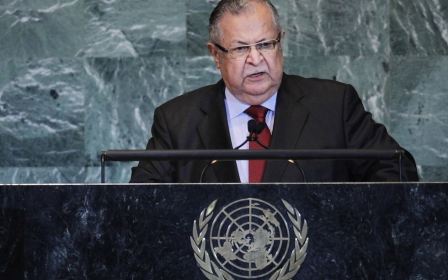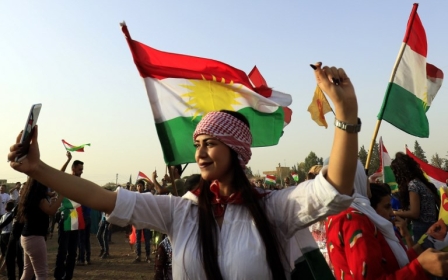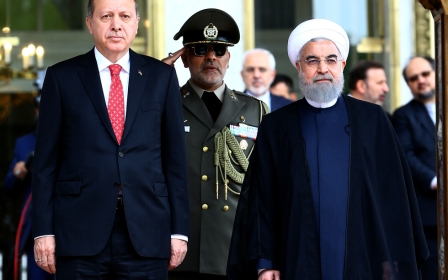Baghdad seeks to take control of Kurdistan-based mobile networks

The Iraqi government said on Monday that it will seek to take control of Kurdistan-based mobile phone operators as part of a fresh set of measures designed to ratchet up pressure less than a month after the autonomous Kurdish region voted overwhelmingly to split from Iraq.
As part of the measures announced by the National Security Council after a cabinet meeting attended by top security officials, the government will also move the headquarters of the phone operators to Baghdad.
'The corrupt will be exposed and these funds will be recovered'
- Iraq's National Security Council on Kurdistan oil probe
The statement did not identify the networks concerned, but they are believed to be Korek and Asiacell, respectively based in the KRG capital Erbil and Kurdish city of Sulaymaniya.
It was not immediately clear how the measures would be implemented, whether the operators' licences would be withdrawn by central government if the companies do not comply and to what extent the millions of Iraqi Kurds who use the companies' services would be impacted, although the NSC emphasised that the measure was not intended to punish them.
Representatives of Korek and Asiacell declined to comment.
In additional measures, the NSC said that the country's general prosecutor has launched a legal case against the Iraqi state officials in Kurdistan who organised the referendum and violated an 18 September Supreme Court ruling which called for voting to be suspended. A list of names of individuals who will be pursued for legal action has already been prepared, the statement said.
The government, according to the statement, will also continue to pursue an ongoing probe into lucrative oil revenues which were deposited in Kurdistan’s financial institutions and officials’ bank accounts.
"The corrupt will be exposed and these funds will be recovered," said the statement.
In reaction to the 25 September referendum which was rejected by the US, Iran and Turkey, Baghdad has already in the past two weeks threatened to take over Kurdistan’s airports and also asked Turkey and Iran to shut their borders with the Kurdistan region and withhold commercial ties that particularly relates to crude oil exports.
New MEE newsletter: Jerusalem Dispatch
Sign up to get the latest insights and analysis on Israel-Palestine, alongside Turkey Unpacked and other MEE newsletters
Middle East Eye delivers independent and unrivalled coverage and analysis of the Middle East, North Africa and beyond. To learn more about republishing this content and the associated fees, please fill out this form. More about MEE can be found here.




